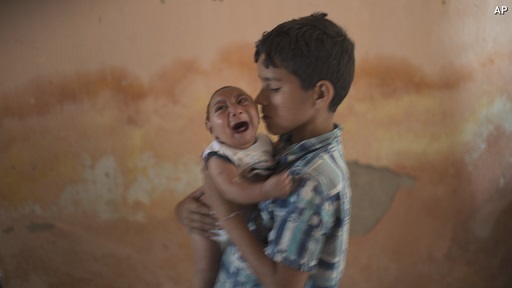BRUSSELS, Jan. 28 (Xinhua) -- The Zika virus, a mosquito-borne virus which is suspected of causing birth defects, has reached Europe with reported cases found in Britain, Denmark and Portugal.
Last Saturday, Public Health England confirmed that as of Jan. 18, three British travelers associated with travel to Colombia, Suriname and Guyana, have been diagnosed with the Zika virus.
Moreover, a Danish citizen who traveled to Latin America and returned to Denmark had been diagnosed with the Zika virus on Tuesday, making it the first case discovered in the country, according to Aarhus University Hospital where the patient was hospitalized.
On Wednesday this week, Portuguese authorities also confirmed that five cases of the Zika virus had been diagnosed, according to the National Health Institute Doctor Ricardo Jorge (INSA).
The five diagnosed in Portugal contracted the virus in Brazil, said INSA.
Portuguese Health Minister Adalberto Campos Fernandes said that the Portuguese can be reassured the situation about the Zika virus is under control and the risk is confined.
However, the rapid arrival of the virus puts real pressure on authorities of some EU countries.
Although the Danish Health Authority denied on Tuesday night the risk of a Zika virus outbreak in the country, it advised pregnant women to postpone non-essential journeys to Latin America, where an outbreak of the virus is ongoing.
Until now, no cases have been found in France. French Health Minister Marisol Touraine on Thursday "strongly" recommended pregnant women avoid travel to Martinique, Guyana and Guadeloupe where cases of Zika virus have been reported.
"It is a public health issue," Touraine told France Info Radio.
The European Center for Disease Prevention and Control (ECDC), the EU's health agency, advised in an updated risk assessment on Zika virus that public health authorities should advise all travelers to affected areas to take protective measures so as to prevent mosquito bites, including during the day.
Pregnant women and women who are trying to become pregnant, are advised to discuss travel plans with their healthcare providers and to consider postponing their travel to affected areas, especially to areas with increasing or widespread transmission, according to the assessment.
In May 2015, Brazil reported its first case of Zika virus. Since then, the disease has spread within Brazil and to 22 other countries and territories in the region.
The Zika virus originates from and is mainly transmitted through mosquitoes. A small number of cases have occurred through sexual transmission or by transmission from mother to fetus via the placenta.
Symptoms of Zika include low-grade fever, joint pain, rash, conjunctivitis, headache, muscle pain and eye pain.
Scientists also believe it is linked to microcephaly, or abnormally small brains, in newborns. According to Brazilian health authorities, more than 3,500 microcephaly cases were reported in Brazil between October 2015 and January 2016. Some of the affected infants have had a severe type of microcephaly and some have died.
Thus, women in Brazil, Colombia and El Salvador have been advised against becoming pregnant during the outbreak.
So far, there is no specific antiviral treatment for Zika virus, and no vaccine or drug could prevent Zika virus infection. Supportive nursing care and relief of symptoms are the standard treatment, according to Public Health England.
The World Health Organization (WHO), headquartered in Geneva, said on Thursday that it would convene an International Health Regulations emergency committee on the Zika virus to ascertain whether the outbreak constitutes a public health emergency of international concern.
WHO's Regional Office for the Americas (PAHO) has been working closely with affected countries since the outbreak in Brazil.
It will also prioritize the development of vaccines and new tools to contro
10:33:17 AM
l certain mosquito populations, as well as improving diagnostic tests, said WHO.





